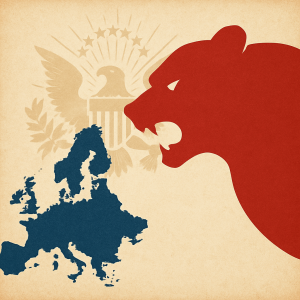The plan was to destroy Hamas. That was the objective of the fifteen months of bombardment of Gaza and what is the result?
Hamas is not dead. It would no longer be capable of launching another 7 October against Israel, but with whom did Benjamin Netanyahu have to negotiate the release of the hostages? Hamas.
Who has just organised, with uniforms and flags, in the middle of Gaza, the handing over of the first groups of Israeli hostages to the Red Cross? Hamas.
Who dictated to the four hostages freed on Saturday their words of thanks ‘for the good treatment, the food, the clothes, the drink and the people which protected us’? Hamas.
Who had hung up a poster behind these young soldiers proclaiming the ‘victory of the oppressed people against Nazi Zionism’? Hamas.
Who can boast of getting released 50 Palestinian prisoners in exchange for each one Israeli soldier, and thirty in exchange for each Israeli civilian, a total of 200 last Saturday? Hamas.
So who is the Palestinian counterpart of the right-wing and far-right coalition that now governs Israel? Hamas again and again, the Islamic Resistance Movement of which ‘Hamas’ is the acronym and of which fifteen months of bombardments have made the most unavoidable of Palestinian organisations.
You might say that these are merely theatrics that cannot obscure the essential point, and it is true. Although they have not wiped out Hamas, these months of bombing have enabled Israel to rid Lebanon of Hezbollah’s stranglehold, deprive the Iranian regime of its regional footholds and, in a knock-on effect, free Syria of its monstrous dictatorship.
To the detriment of the Iranian axis and the benefit of Israel, the entire Middle East landscape has been altered, but now what?
Resentment and hatred have only grown between two peoples, neither of whom will give up this land that is said to be holy. Now more or less equal in numbers, Israelis and Palestinians have no other prospect than the eternal repetition of periods of appeasement and flare-ups, while the range of possible solutions remains the same.
The first is for the Palestinians to throw the Israelis into the sea, since they could not find asylum in the neighbouring countries. This is not desirable and the Palestinians would not manage to succeed in this for a long time.
The second solution would be for the Israelis to expel the Palestinians to Lebanon, Egypt and Jordan. The Israeli right has always dreamt of this. Donald Trump has just rallied to this idea, but even the bombardments of Gaza and the exactions of the West Bank settlers have not persuaded the Palestinians to exile themselves to countries that do not want them anyway.
Equally unjust and unworkable, this is not a solution, and the third would be for Israel to become a bi-national state. This sounds attractive, humanistic and fair, but apart from the fact that it would mean the end of the national home that 2000 years of persecution made so many Jews dream of, it is hard to see how these two peoples could coexist under the same flag.
That leaves the peaceful coexistence of two separate states.
We no longer dare to defend this fourth solution, so utopian does it seem after the pogrom of 7 October and the subsequent suffering of the people of Gaza. This utopia is now dead and buried, we hear everywhere, but there is no other way to bring this 100-year war to an end.
Utopia must finally prevail over folly, and the European Union has a vital interest in this, because just as close as Africa and Russia, the Middle East is on its doorstep.
(Bernard Guetta chairs the 2 States Intergroup at the European Parliament, of which he is a Member)



